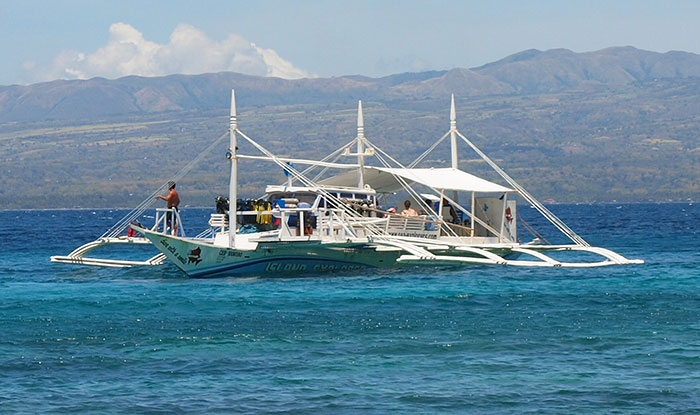
When the “ber-months” roll in—September to December—it’s not just the holiday spirit that arrives in the Philippines. In Dauin, Negros Oriental, these months are also prime time for spotting a fascinating array of octopus species.
Sea Explorers Philippines’ Dauin Branch is home to one particularly special dive site:
Bonet’s Corner
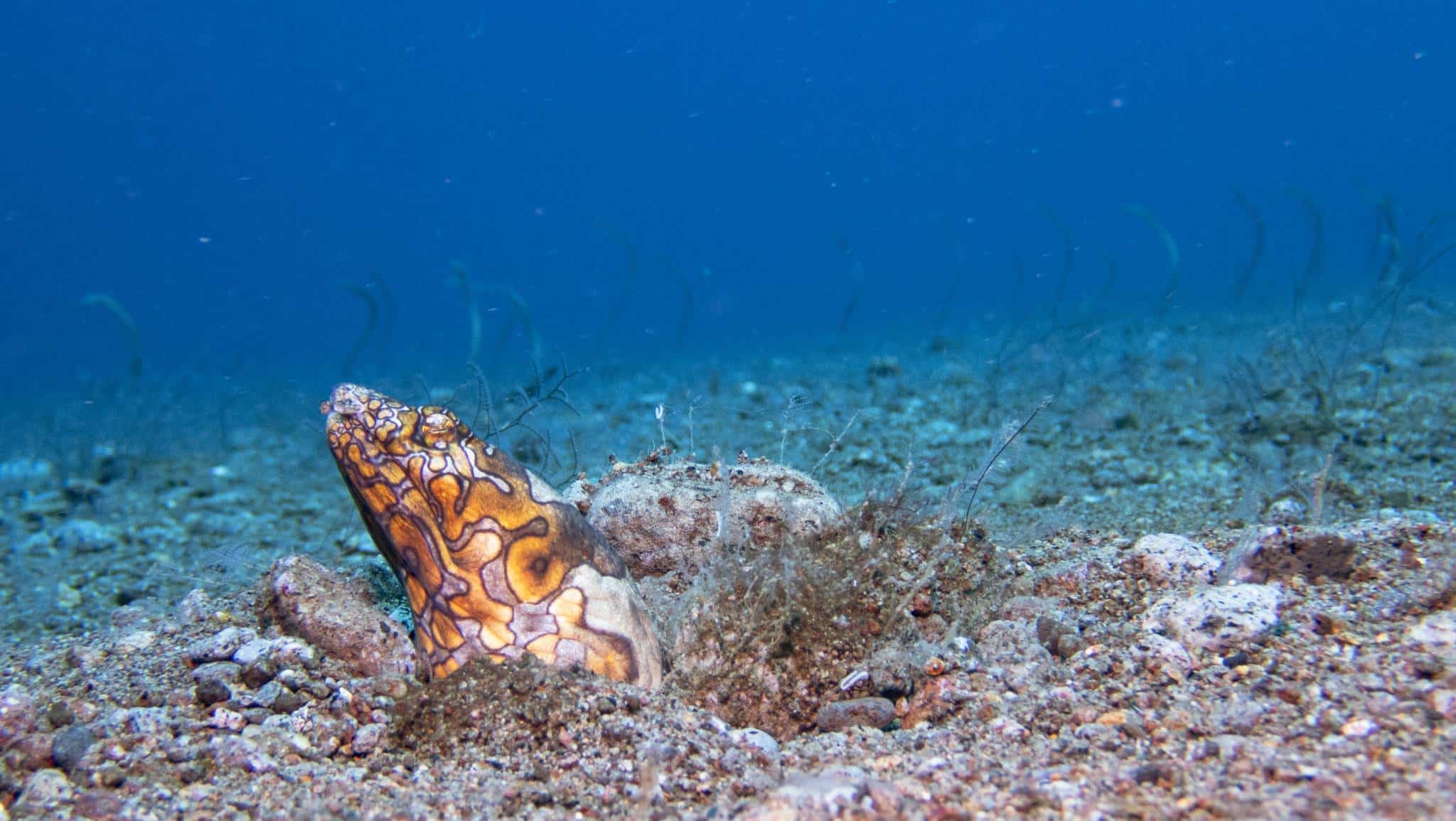
At first glance, it’s just a stretch of sand and rubble. But look closer, and you’ll find it’s a playground for some of the most unique and elusive cephalopods in the region. Here’s a peek at some of the eight-armed locals you might encounter:
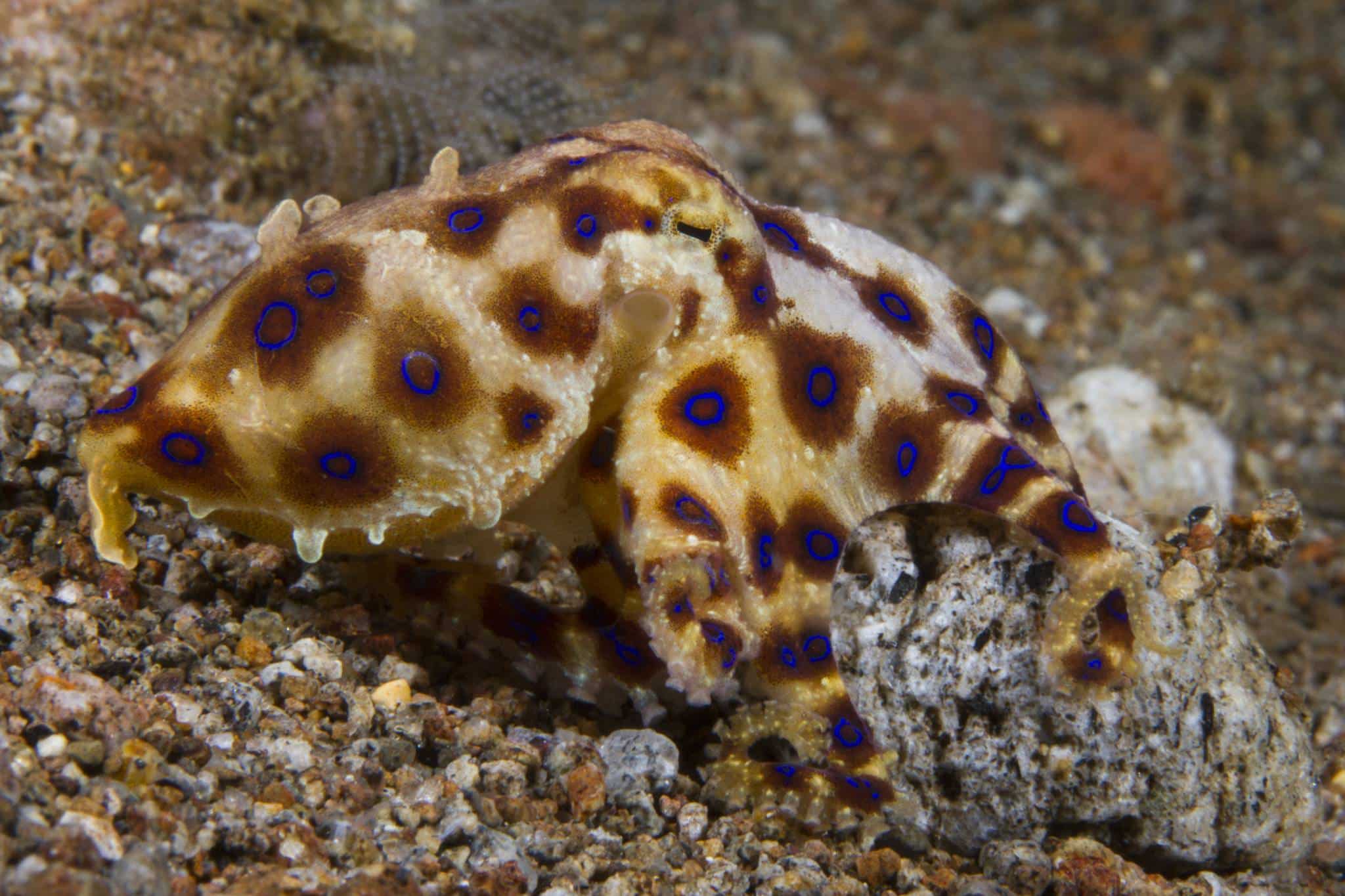
1. Blue-Ringed Octopus (Hapalochlaena spp.)
Don’t be fooled by its small size and beautiful blue rings—this octopus is one of the ocean’s most venomous creatures.
Fun Fact: Its bright rings flash as a warning when it feels threatened. Despite its potent venom, it’s shy and will avoid confrontation unless provoked.
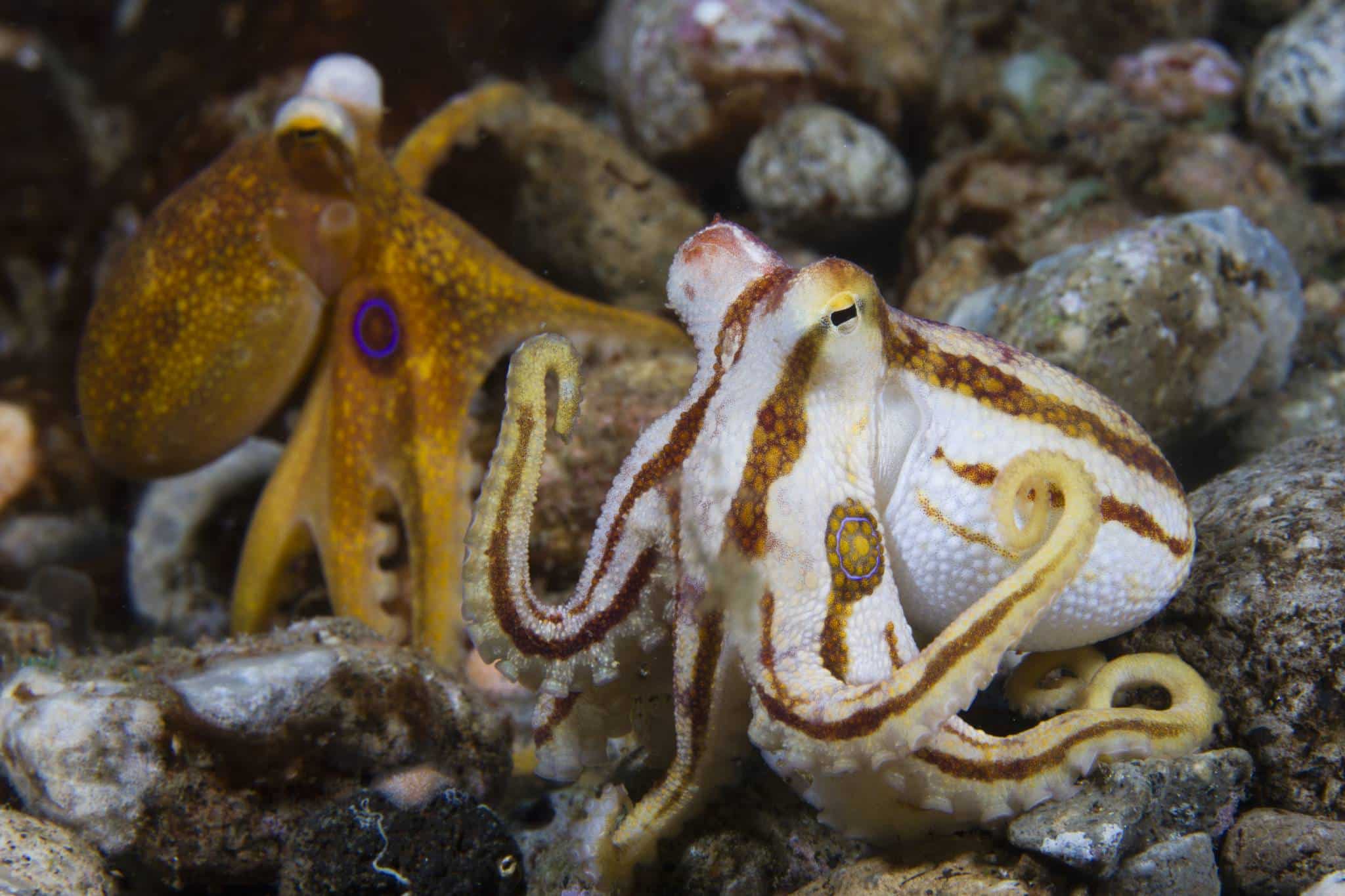
2. Mototi Octopus (Amphioctopus mototi)
A master of camouflage, it blends perfectly with sand and rubble—until it flashes its telltale dark eye spots.
Fun Fact: This octopus can produce venom similar to the blue-ringed, so it’s best admired from a safe distance.
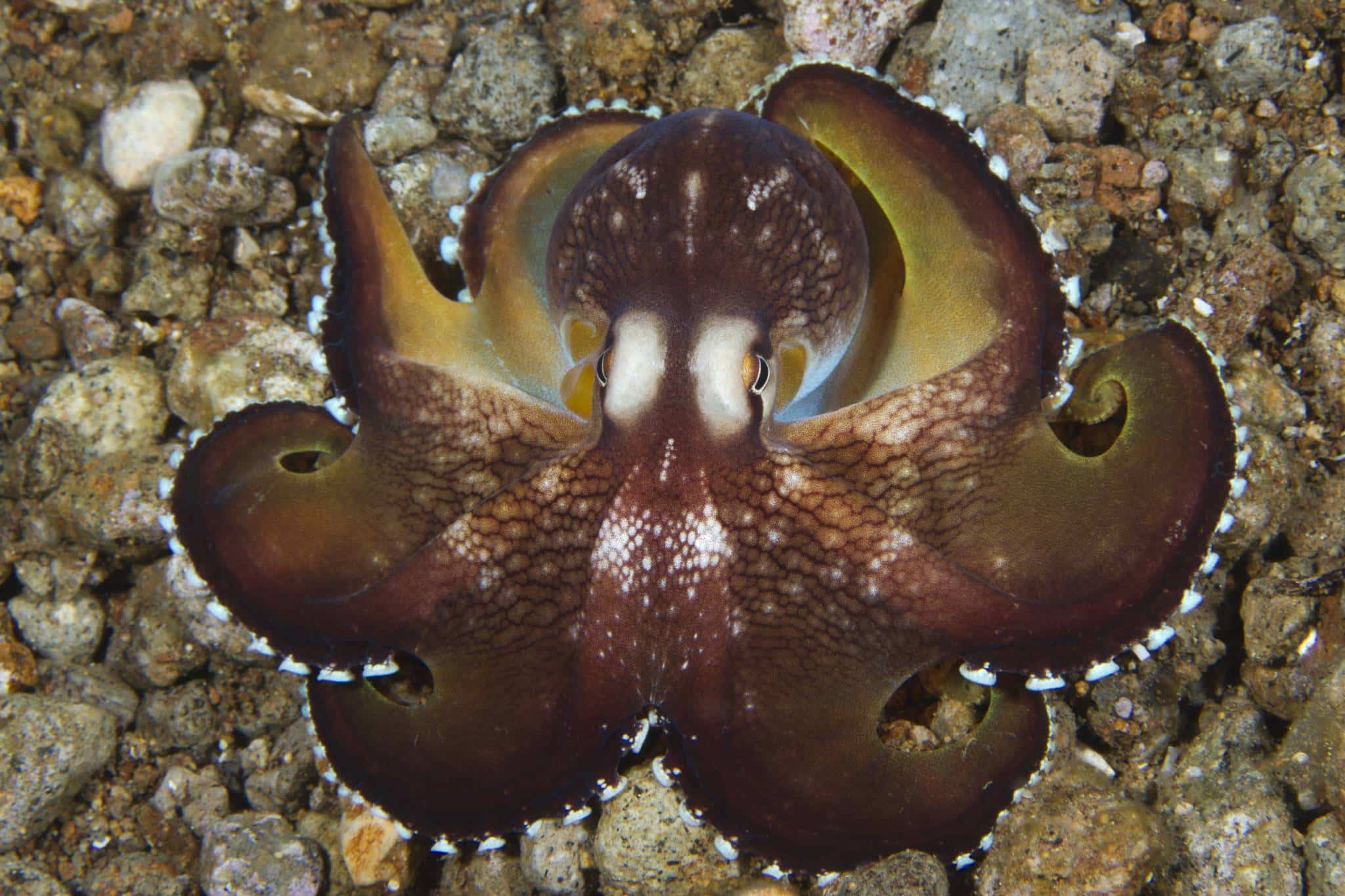
3. Coconut Octopus (Amphioctopus marginatus)
The ocean’s little engineer—it carries shells, coconut husks, and even trash to use as mobile homes.
Fun Fact: It’s one of the few known animals to use tools, earning it a spot among the most intelligent invertebrates.
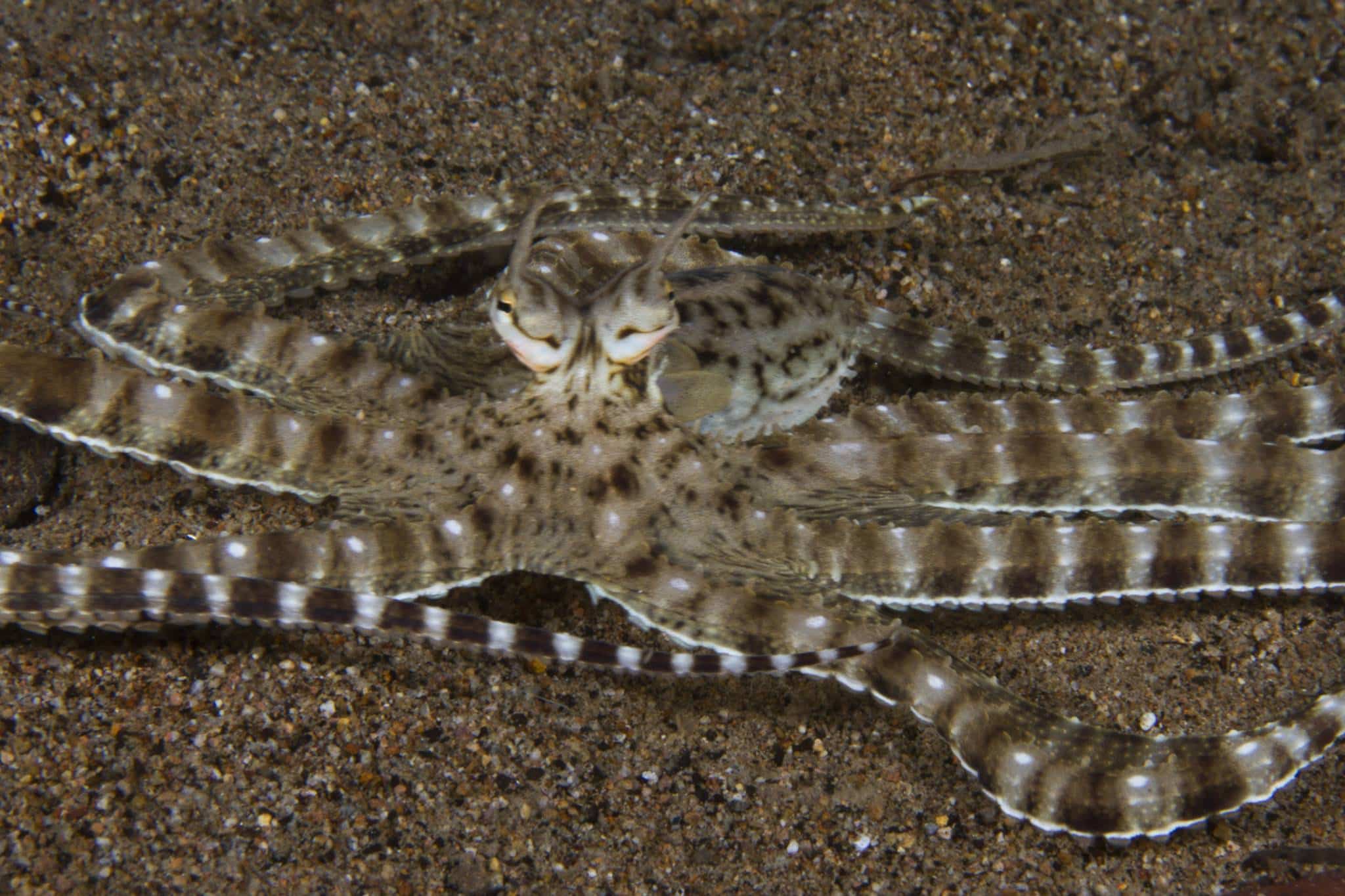
4. Mimic Octopus (Thaumoctopus mimicus)
A true master of disguise, it can imitate the appearance and movements of other marine animals such as lionfish, flounders, and even sea snakes.
Fun Fact: Scientists believe the mimic octopus chooses which creature to impersonate based on the type of predator it’s trying to avoid.
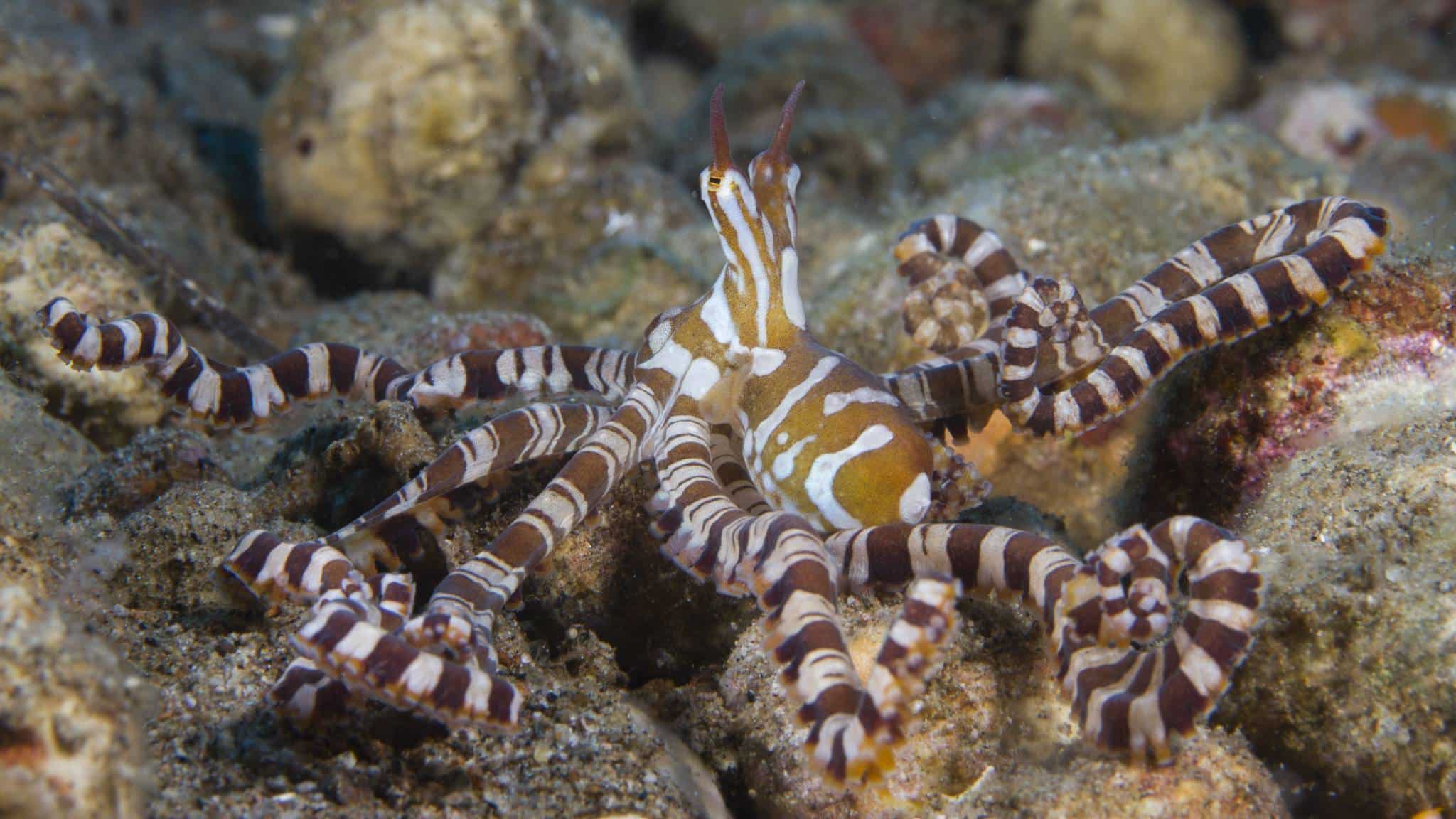
5. Wunderpus (Wunderpus photogenicus)
With its striking brown-and-white pattern, the wunderpus is as photogenic as its name suggests.
Fun Fact: Each wunderpus has unique markings—like a fingerprint—that can be used to identify individuals.
Why Bonet’s Corner is Special
The sandy and rubbly bottom at Bonet’s Corner may seem unremarkable, but it’s a prime hunting and hiding ground for octopuses. With the right eyes—and a skilled dive guide—you can spot multiple species in a single dive.
So, if you’re looking for an underwater adventure filled with incredible cephalopod encounters, the ber-months in Dauin should be on your dive calendar. Just remember: respect their space, take only pictures, and enjoy the magic of the ocean’s most charismatic shape-shifters.



